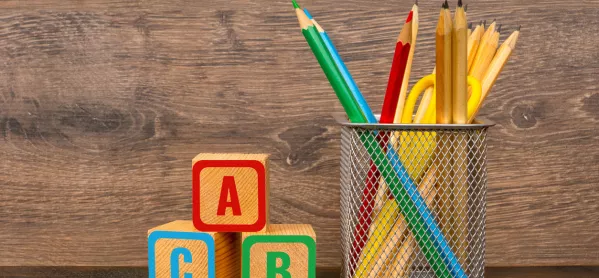Children perform better in spelling tests if they are rewarded as part of a team rather than on an individual basis, according to new research.
The study, from the National University of Singapore, found that a common goal of winning and an “us versus them” mindset encourages high-achieving pupils to help their peers improve, boosting the performance of the whole group.
This “team-learning approach” was found to be preferable to rewarding only the best student in each class at the expense of others.
News: KS1 Sats results: Reading pass rate remains stable
Viewpoint: ‘If you want children to learn to spell, teach them spelling - not phonics’
Advice: Word up: how to get students using the dictionary
The researchers tracked the performance and behaviour of more than 1,000 pupils at primary schools in Singapore over the course of 10 weeks.
Each child was randomly assigned to one of five types of reward-based teaching: competitive, cooperative, individualistic, cooperative-competitive and cooperative-individualistic.
For the competitive method, teachers rewarded only the pupil scoring highest in the class, while those in the cooperative category were assessed in groups - with each member’s ability influencing the team’s overall chance of winning a prize.
For the individualistic approach, pupils were rewarded for reaching their personal goals. No teamwork was involved.
Meanwhile, for the cooperative-competitive method, pupils worked together but competed against other teams; and for the cooperative-individualistic approach, children worked as a team to help each another reach individual targets.
Working towards a common goal
Pupils’ ability levels were assessed at the outset as high, middle or low, and their spelling test scores and prosocial behaviour tracked over the course of the experiment.
The researchers found that only the cooperative-competitive method benefited children of all abilities in both categories (spelling and behaviour) - suggesting that working towards a common goal as part of a team, while competing against other groups, can improve performance and encourage pupils to be helpful and sensitive towards one another.
The report concluded: “On the whole...it is not unreasonable from the present study to advance cooperative-competitive reward pedagogy as a way forward, at least for Primary 3 and 4 [Year 4 and 5] students of different ability levels, as educators seek to produce positive and lasting effects on both academic performance and social connectedness.
“At a minimum, the present study helps put to bed the question of whether or not to use rewards, and to focus instead on the more nuanced but important and useful question of how rewards can be used more effectively.”
Co-author Francesca Li Ting Wah added: “Cooperation plays a key role in cultivating social connectedness. On the other hand, increases in prosocial behaviour were also seen for competitive reward pedagogy for high- and middle-ability students, and for individualistic reward pedagogy for middle- and low-ability students. These results advise caution against a conclusion that cooperation is solely at work.”




